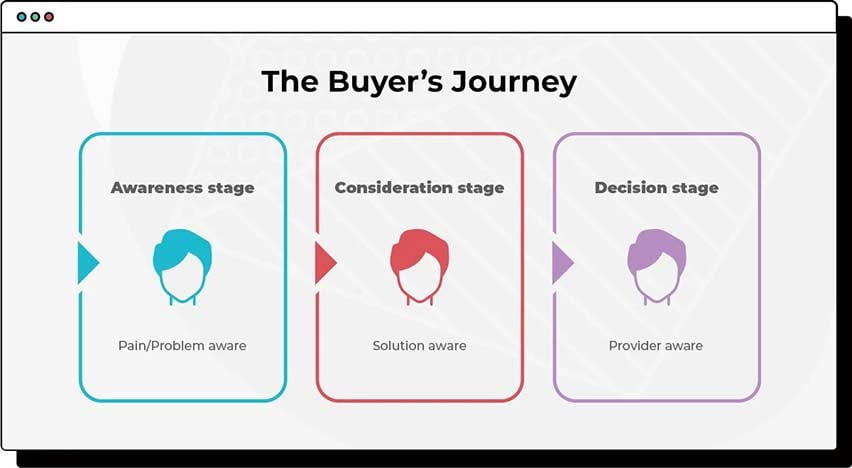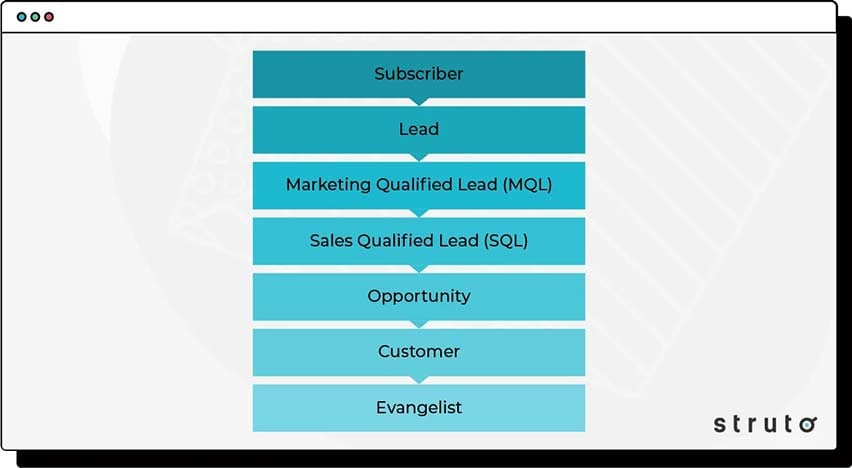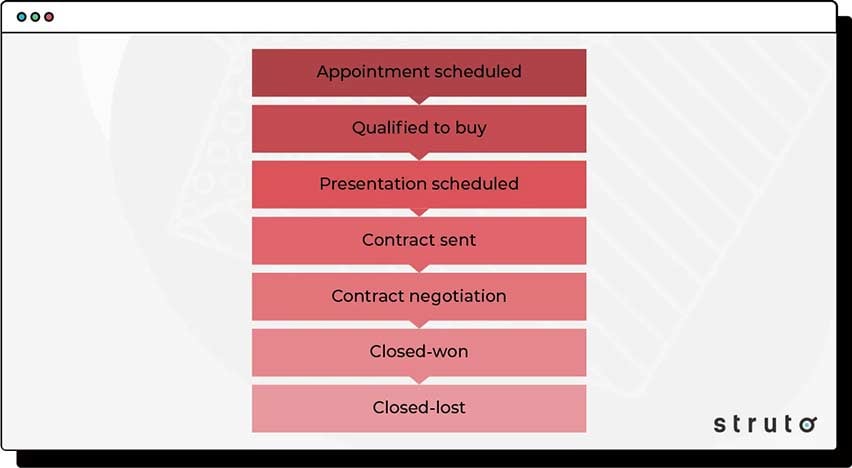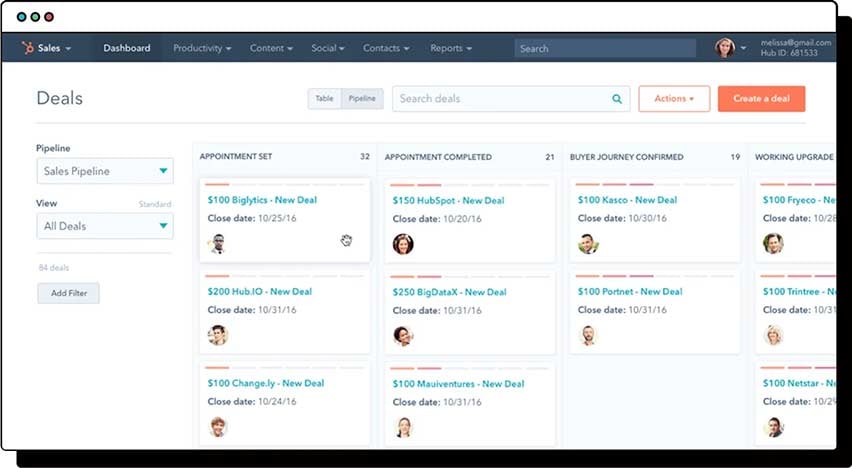In today's fast-paced business world, staying ahead in sales and marketing is more than just a goal - it's a necessity. Central to this pursuit is the efficient management of customer relationships, a task that demands both precision and adaptability. Enter HubSpot, a leader in the realm of Customer Relationship Management (CRM) tools. HubSpot stands out for its comprehensive approach to managing the full spectrum of customer interactions and transactions.
At the heart of HubSpot’s prowess lies its robust lifecycle and deal stages, designed to streamline and enhance every step of the customer journey. From initial contact to loyal evangelism, HubSpot’s stages offer a structured yet flexible framework, enabling businesses to fine-tune their sales processes, nurture leads more effectively, and ultimately, drive successful outcomes. This blog delves into the transformative power of HubSpot's lifecycle and deal stages, offering insights and strategies to elevate your sales and marketing game.
How Does This Connect to Your Buyer's Journey?

HubSpot's Lifecycle and Deal Stages are more than just organisational tools; they're key to understanding and aligning with your buyer's journey. These stages allow you to effectively track and engage with your customers at every critical point, from their initial awareness to their decision-making process and beyond. By integrating these stages into your strategy, you can ensure that your marketing and sales efforts are not only timely and relevant but also tailored to the evolving needs and behaviours of your buyers. This alignment is essential for nurturing leads, closing deals, and building lasting customer relationships, ultimately driving business growth and success.
Understanding HubSpot's Lifecycle Stages
HubSpot's lifecycle stages are pivotal in mapping the customer journey, providing a framework to understand and engage with your audience effectively. These stages are:

Subscriber: This initial stage involves individuals who have subscribed to your content, typically providing only their email address. They represent the broadest audience with potential interest in your offerings.
Lead: A more informed stage where individuals have shown further interest, sharing additional details like name and specific interests. This stage is crucial for beginning personalised engagement.
Marketing Qualified Lead (MQL): MQLs are leads who have engaged with your marketing efforts and shown a clear interest in your products or services. This stage is significant for targeting with more focused marketing strategies.
Sales Qualified Lead (SQL): Leads in this stage exhibit clear buying intent, such as requesting contact or booking a sales meeting. SQLs are primed for direct sales engagement.
Opportunity: This critical stage marks a lead’s transition into a potential sales deal. It’s where the sales team actively works on converting the lead into a customer, involving negotiations and proposals.
Customer: The culmination of the journey, where a lead becomes a paying customer. This stage is essential for measuring the effectiveness of your sales funnel.
Evangelist: The final stage, where satisfied customers actively advocate for your brand, often through social media or referrals. Evangelists are valuable assets for organic growth and brand credibility.
Each stage in HubSpot’s lifecycle allows for tailored strategies, ensuring that communications and interactions are relevant and effective. Understanding and utilising these stages can significantly enhance your ability to guide leads through their buying journey, from initial awareness to enthusiastic advocacy.
Understanding HubSpot Deal Stages

While lifecycle stages track the overall journey of a contact, HubSpot's deal stages zoom in on the specific progression of a sales deal. These stages outline the steps of a transaction, from initial interest to finalisation:
Here are indicative stages provided by HubSpot as default. Customising this for your business and your unique sales process would be a key priority when starting your HubSpot journey.
Appointment scheduled: Marks the scheduling of a meeting with a potential customer, indicating the start of active sales engagement.
Qualified to buy: At this stage, the lead is assessed and confirmed as a viable prospect for purchase.
Presentation scheduled: Indicates that a presentation or detailed discussion about the product or service has been arranged.
Contract sent: The stage where a formal proposal or contract is sent to the prospect.
Contract negotiation: Involves discussions and adjustments to the terms of the contract.
Closed-won: The deal is successfully closed, and the lead becomes a customer.
Closed-lost: Indicates that the potential deal did not materialise into a sale.
Understanding and effectively managing these deal stages is crucial for sales teams. It enables them to track and optimise each step of the sales process, identify potential bottlenecks, and enhance the overall chances of closing deals successfully.
Key Differences Between Lifecycle Stages and Deal Stages
The primary distinction between HubSpot's lifecycle stages and deal stages lies in their respective focus and application within the sales and marketing funnel. Lifecycle stages are designed to track the overall journey of a contact with your brand. They are instrumental in segmenting and nurturing leads through personalised marketing and sales efforts. Contacts move through these stages based on their interactions and engagement levels with your brand, starting from initial awareness and potentially culminating in advocacy.
In contrast, deal stages are specifically focused on the progression of individual sales deals. They provide a structured framework for managing and tracking the status of each sales opportunity. The progression through these stages is determined by concrete actions and milestones achieved in the sales process, ranging from the initial contact to the successful closure of a deal.

Understanding the nuances between these two sets of stages is crucial for effectively leveraging HubSpot's capabilities, ensuring that both lifecycle and deal stages are utilised optimally within your overall sales and marketing strategy.
When to Use Lifecycle Stages vs. Deal Stages
Lifecycle stages should be utilised in broader scenarios involving marketing and customer relationship management. They are especially effective for lead nurturing and segmentation, where you can tailor marketing efforts to align with the contact's current relationship with your brand. These stages are also crucial in targeting marketing campaigns, as they allow for delivering tailored messages at the most appropriate stage in the customer's journey, thereby enhancing engagement and conversion rates.
On the other hand, deal stages are critical in contexts that are more specific to the sales process. They are essential for managing individual deals, providing a clear pathway to track and optimise each step from initiation to closure. Deal stages also play a vital role in analysing sales team performance, offering insights into how effectively deals are moving through the sales pipeline and identifying potential areas for improvement.
By clearly understanding when to apply lifecycle stages versus deal stages, businesses can more accurately focus their efforts, leading to more efficient and targeted marketing strategies and a more streamlined, effective sales process.

Conclusion
In conclusion, understanding and effectively utilising HubSpot's lifecycle and deal stages is crucial for any business looking to enhance its sales and marketing efforts. By tailoring these stages to your unique business needs, and thereafter now and again reviewing and updating them, and integrating them for a comprehensive view of your customer interactions and sales processes, you can significantly improve your overall business performance.
How Can Struto Help?
We offer specialised assistance in tailoring HubSpot's lifecycle and deal stages to align with your unique business needs. Our expertise ensures that your CRM setup and strategies are optimised for maximum efficiency.
With our support, you can enhance your customer engagement, improve conversion rates, and see a significant uplift in your business performance.


